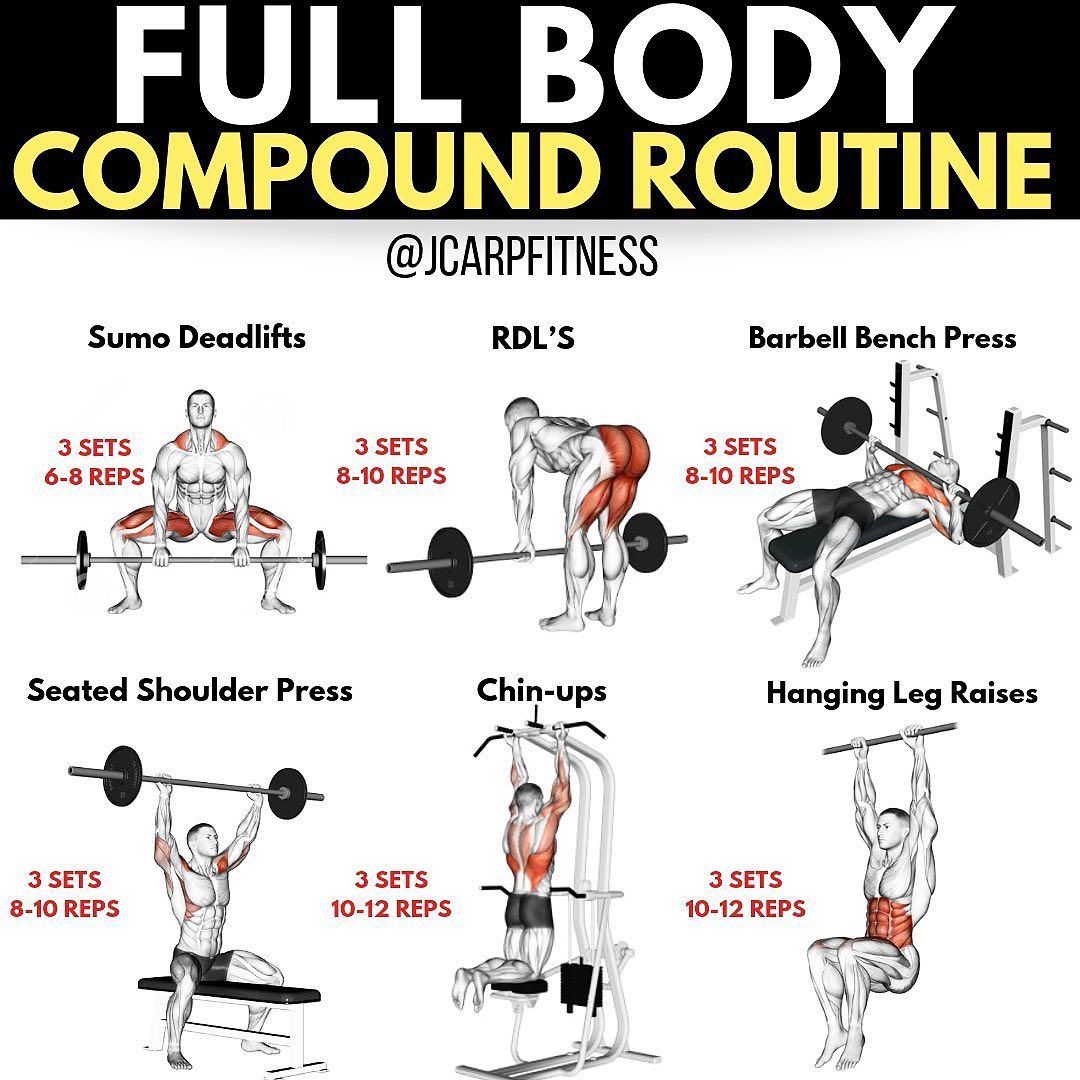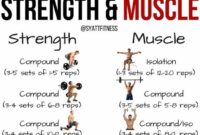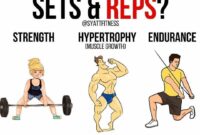Weight lifting workouts men are crucial for building strength, muscle mass, and overall fitness. This guide explores various programs tailored to different experience levels, from beginner routines focusing on fundamental compound exercises to advanced programs incorporating periodization and advanced training techniques. We’ll delve into proper form, injury prevention, nutrition, supplementation, and recovery strategies to help men achieve their fitness goals safely and effectively.
Whether you’re a novice looking to start your fitness journey or an experienced lifter aiming to optimize your training, this comprehensive guide provides the knowledge and tools you need to succeed. We cover everything from creating a personalized workout plan to understanding the crucial role of nutrition and supplementation in achieving optimal results. Safety and injury prevention are paramount, and we’ll address these concerns throughout.
Nutrition for Weight Lifting Men
Proper nutrition is paramount for men engaged in weightlifting, playing a crucial role in muscle growth, recovery, and overall performance. A well-structured diet provides the necessary building blocks and energy to support intense training and facilitate the body’s repair processes. Failing to meet nutritional needs can hinder progress and potentially lead to injury or overtraining.
Sample Meal Plan for Muscle Mass Gain
This sample meal plan provides approximately 2500-3000 calories, with a macronutrient ratio suitable for muscle growth. Individual needs may vary depending on factors such as body weight, training intensity, and metabolism. Adjust portion sizes accordingly to meet your specific caloric requirements. Remember to consult with a registered dietitian or nutritionist for personalized guidance.
| Meal | Food | Macronutrients (g) | Calories (approx.) |
|---|---|---|---|
| Breakfast | Oatmeal (1 cup) with protein powder (1 scoop), berries (1/2 cup), and nuts (1/4 cup) | Protein: 40g, Carbohydrates: 60g, Fat: 15g | 500 |
| Lunch | Grilled chicken breast (6 oz) with brown rice (1 cup) and mixed vegetables (1 cup) | Protein: 50g, Carbohydrates: 70g, Fat: 10g | 650 |
| Snack | Greek yogurt (1 cup) with fruit (1/2 cup) | Protein: 25g, Carbohydrates: 20g, Fat: 5g | 250 |
| Dinner | Salmon (6 oz) with sweet potato (1 medium) and broccoli (1 cup) | Protein: 40g, Carbohydrates: 60g, Fat: 20g | 700 |
| Snack | Protein shake (1 scoop) with almond milk (1 cup) | Protein: 30g, Carbohydrates: 10g, Fat: 5g | 200 |
The Importance of Protein for Muscle Growth and Recovery
Protein is the fundamental building block of muscle tissue. Sufficient protein intake is crucial for both muscle protein synthesis (the process of building new muscle) and muscle protein breakdown (the process of muscle tissue degradation). A positive protein balance, where synthesis exceeds breakdown, is essential for muscle growth. Protein also plays a vital role in repairing muscle damage caused by weight training.
Protein Sources and Their Benefits
Various high-quality protein sources offer distinct benefits. Lean meats (chicken, turkey, beef) provide a complete amino acid profile, essential for optimal muscle growth. Fish (salmon, tuna) offers protein along with omega-3 fatty acids, beneficial for overall health and reducing inflammation. Eggs are a complete protein source, rich in essential nutrients. Dairy products (Greek yogurt, cottage cheese) provide protein and calcium. Plant-based protein sources, such as legumes, tofu, and quinoa, offer protein but may require combining different sources to obtain a complete amino acid profile.
The Role of Carbohydrates and Fats in a Weightlifter’s Diet
Carbohydrates provide the primary source of energy for weightlifting workouts. Complex carbohydrates, such as brown rice, quinoa, and sweet potatoes, offer sustained energy release, preventing energy crashes during training. Fats are essential for hormone production, nutrient absorption, and overall health. Healthy fats, such as those found in avocados, nuts, and olive oil, should be included in the diet. These fats contribute to satiety and support overall well-being. Avoiding excessive intake of processed carbohydrates and unhealthy fats is important to maintain a healthy body composition.
Supplements for Weight Lifting Men
Supplementing your weightlifting routine can potentially enhance your results, but it’s crucial to understand their benefits, risks, and proper usage. This section details common supplements, their effects, and the importance of safe supplementation practices. Remember that supplements are not a replacement for a balanced diet and consistent training.
Common Weightlifting Supplements and Their Effects
Many supplements claim to boost muscle growth, strength, and recovery. However, their effectiveness varies depending on individual factors, training intensity, and diet. It’s essential to research and understand each supplement before incorporating it into your routine.
- Creatine: Creatine monohydrate is arguably the most researched and effective supplement for increasing strength and power output. It works by increasing the availability of phosphocreatine in muscles, allowing for more intense and prolonged high-intensity exercise. Potential side effects are generally mild and include water retention, weight gain, and gastrointestinal upset. However, these are usually temporary and subside with continued use.
- Protein Powder: Protein powder provides a convenient and efficient way to increase your daily protein intake, crucial for muscle growth and repair. Whey, casein, soy, and brown rice are common protein sources. Whey protein is absorbed quickly, making it ideal post-workout, while casein provides a slower, sustained release. Potential side effects can include digestive discomfort if consumed in excess or if intolerant to a specific protein source. Always choose a reputable brand with third-party testing to ensure purity and quality.
- Branched-Chain Amino Acids (BCAAs): BCAAs (leucine, isoleucine, and valine) are essential amino acids that play a vital role in muscle protein synthesis. They may reduce muscle soreness and fatigue during and after intense training. Side effects are rare but may include digestive issues, especially with high doses. BCAAs are often combined with other supplements or consumed as a standalone product.
Safe Supplement Usage and Potential Interactions
Before starting any new supplement, consult with your doctor or a registered dietitian, especially if you have pre-existing health conditions or are taking other medications. Some supplements can interact negatively with medications, potentially leading to adverse effects. Always follow the recommended dosage instructions on the supplement label and be aware of potential interactions. For instance, creatine can interact with certain diuretics, and some protein powders may contain ingredients that interact with blood thinners.
Hydration and its Impact on Workout Performance and Recovery
Adequate hydration is crucial for optimal workout performance and recovery. Dehydration can lead to decreased strength, endurance, and increased risk of injury. During intense exercise, the body loses fluids through sweat, and replenishing these fluids is essential. Proper hydration strategies include drinking water before, during, and after workouts. The amount of water needed will vary based on individual factors such as body weight, intensity of exercise, and environmental conditions. Consider using electrolyte drinks, particularly during prolonged or intense workouts, to replace electrolytes lost through sweat. Maintaining proper hydration is critical for muscle function, nutrient transport, and overall bodily function.
Ending Remarks
Ultimately, achieving success in weightlifting for men involves a holistic approach encompassing well-structured workouts, proper nutrition, strategic supplementation, and a commitment to consistent effort and recovery. By understanding the principles outlined in this guide, men can safely and effectively build strength, increase muscle mass, and improve their overall well-being. Remember to always prioritize proper form, listen to your body, and seek professional guidance when needed.



